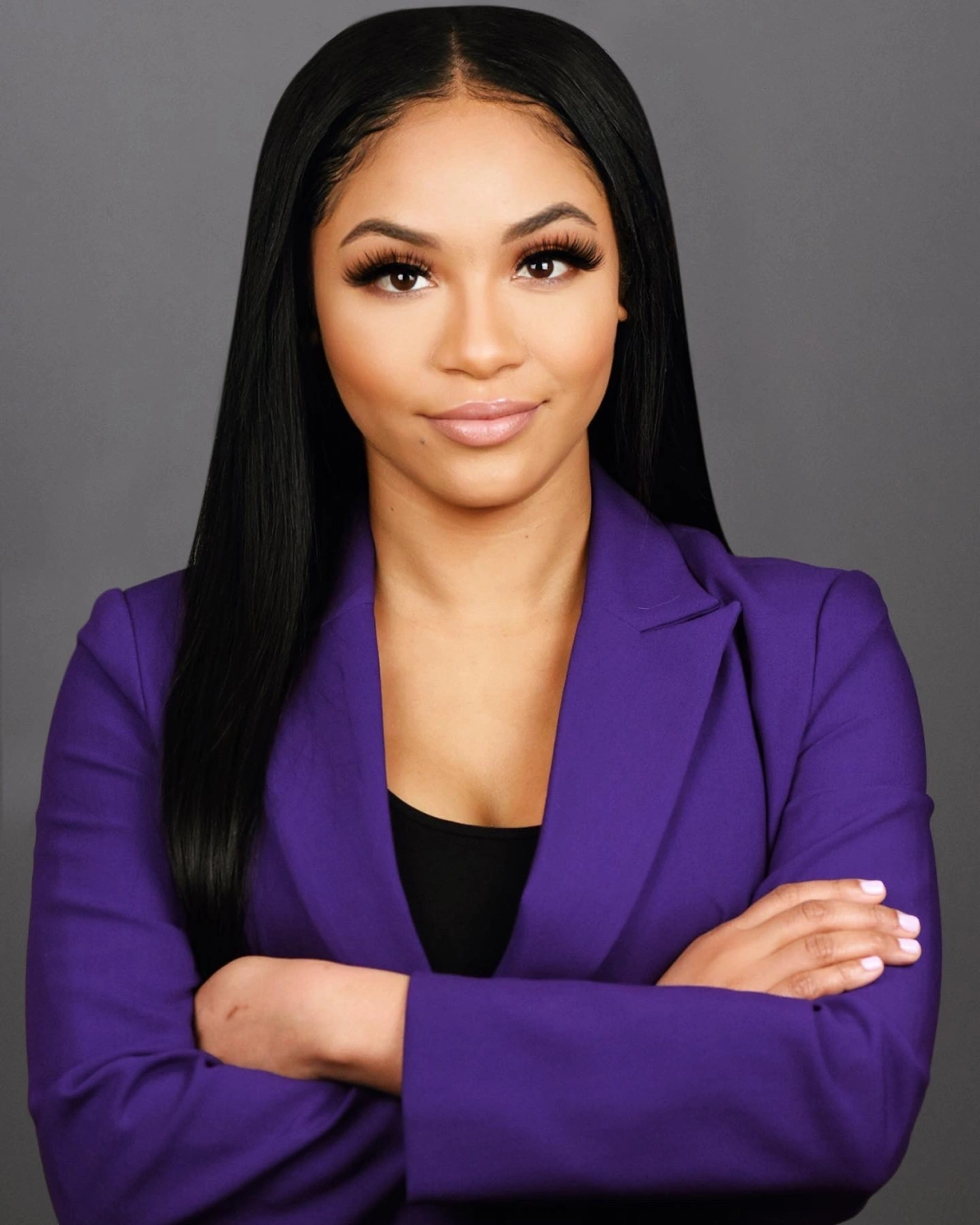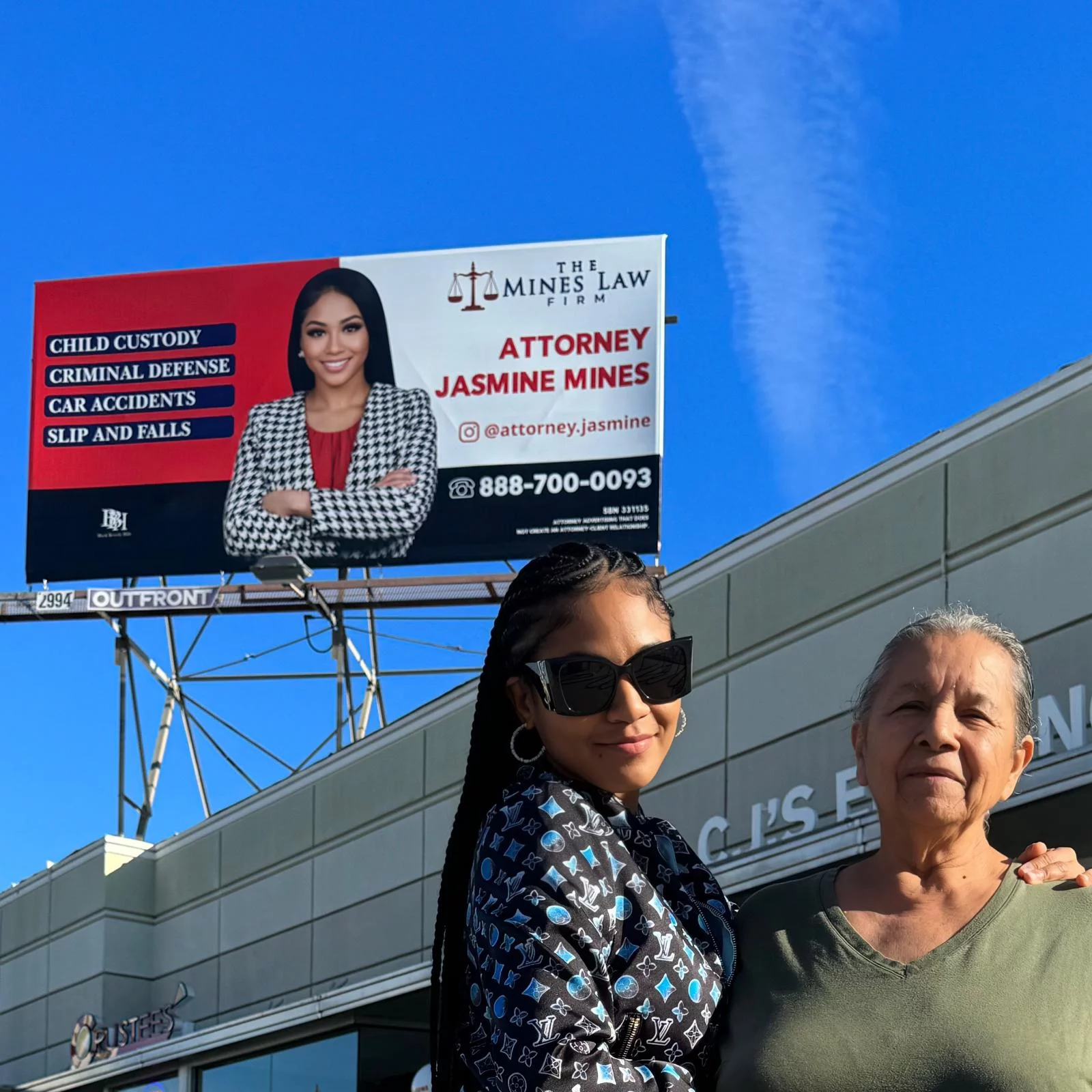Youth Groups
- Home
- Youth Groups
Attorney Jasmine Offers You the Opportunity to Speak to Your Youth
Dad, in his Federal Prison clothing, and I.
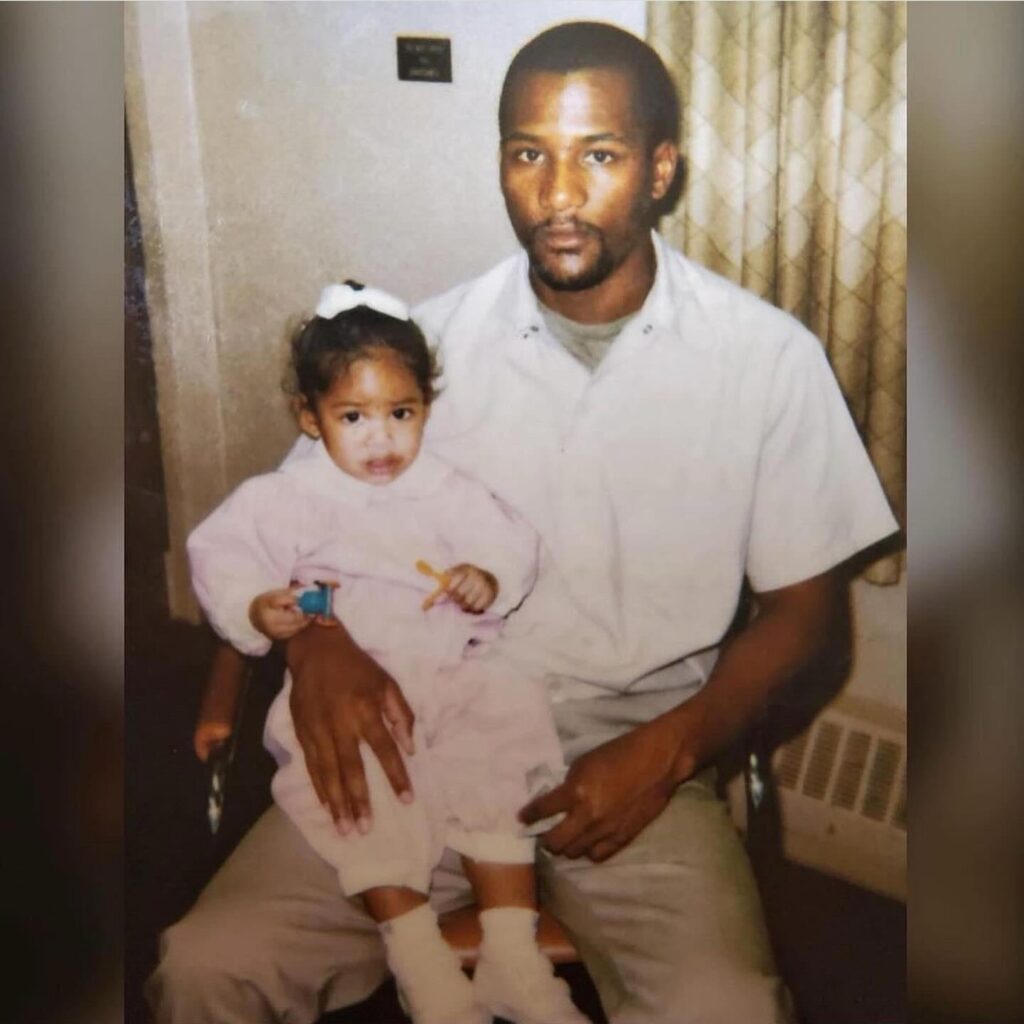
He is from Compton. His arrest marked the first EVER documented presence of the Crips on the east coast, the set being Santana Blocc Crips.
He has been incarcerated more years of his LIFE than he has been a free person!!
Statistically, children with incarcerated parents are more likely to drop out of school and have lower educational attainment overall when compared to peers without incarcerated parents. Studies suggest that these children face a variety of barriers to educational achievement, including social stigma, financial instability, and emotional trauma.
Statistically, boys with jailed parents have a 2.7 times higher chance of being imprisoned by their early 30s than those who did not have incarcerated parents.
And statistically, according to a report from the National Institute of Justice, children who have experienced parental incarceration have a significantly higher likelihood of subsequent behavioral problems and involvement in the criminal justice system: about 10% higher.
But unfavorable numbers don’t HAVE to shape your identity. Put the ball back in your court. Get help from specialists when you need it. Be a leader. Know that you CAN There is a stigma, FOR SURE, but I lived with it, too. When you feel hopeless, remember, I am YOU & you are welcome to follow my journey which is more so on IG @attorney.Jasmine for motivation and inspiration Follow the backup page, too. @mineslawfirm
Statistically, 5% of all USA attorneys are black. 3% men. 2% women.
The other lawyers and “experts” can read books about us, but they can never truly relate to us. You gotta understand that when you put your life, or dreams, in someone else’s hands.
Shout out to my single mom. She DID that.
& Shout out to me because I had the opportunity to help my uncle get his juvenile murder EXPUNGED.
Share this link because you know someone who needs it!
About my Family
Growing up...
My Mexican grandma was raised by her grandmother. My grandma was virtually excommunicated from her Mexican family when she had black babies.
Her grandmother had told her to leave those Niggers alone‼ When she didn’t, her grandmother told her she would never amount to anything. She was only 15.
Shunned by her family after they sent her away and she refused to give up her black baby for adoption. She refused to sign the papers.
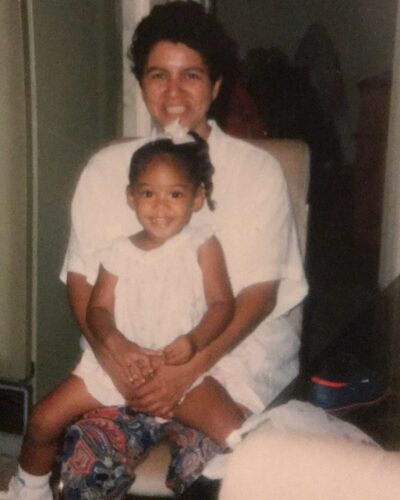
About my Family
Growing up...
Her own grandmother had forewarned her of a future with no accomplishments. However, my graduation from law school was a testament otherwise. There, my grandma told me, “I wish my grandmother could see you.”
In that moment, I realized the magnitude of my journey. I am not just a graduate; I am a symbol of perseverance, love, and breaking barriers. My existence and achievements are a salute to those who dared to dream big and of those who literally went against all odds. I just thank God. At all times, He sees the best in me.
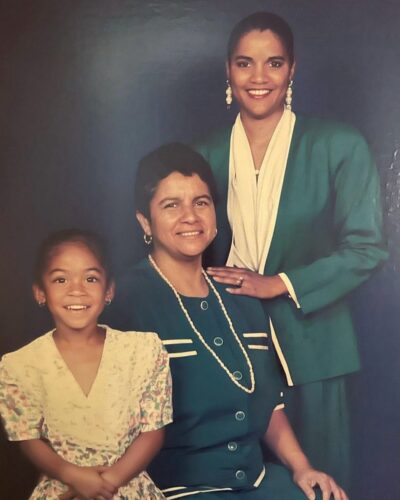
THE ATTORNEY
Jasmine A. Mines
Lawyer
Attorney Jasmine A. Mines is a licensed lawyer in California with experience in a variety of legal areas such as family law, personal injury, and civil litigation. She has represented clients in both state and federal courts, demonstrating a high level of legal knowledge and expertise. Additionally, Attorney Mines has a reputation for providing personalized attention to her clients and achieving successful outcomes for them.
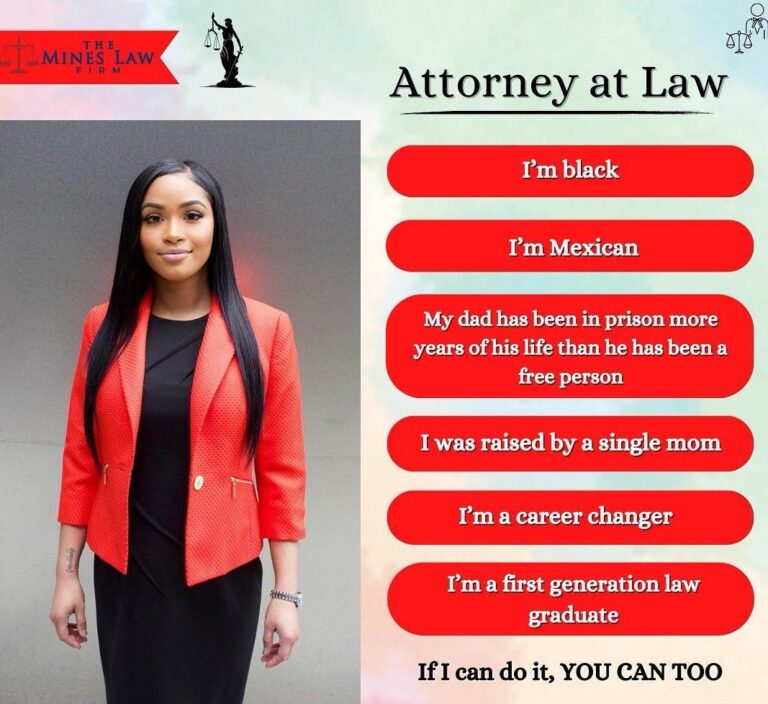
Why is this important?
The importance of showing youth role models who share their racial or family backgrounds is rooted in the profound impact it has on their identity development, aspiration levels, and sense of belonging. When young people see successful individuals who look like them or come from similar backgrounds, it can be incredibly empowering. This representation helps to dismantle stereotypes and break down systemic barriers by challenging societal perceptions and expectations. It sends a powerful message to the youth that their race or family background is not a limitation but a source of strength and pride.
Role models of the same race or family background provide relatable pathways to success. They offer tangible examples of overcoming adversity, achieving goals, and contributing positively to society. This visibility is crucial in expanding young people’s perceptions of what is possible for them to achieve. It can inspire them to pursue a wider range of careers, hobbies, and interests that they might not have considered accessible or achievable otherwise. For instance, seeing a scientist, author, or CEO who shares a similar heritage can inspire a child to aim for achievements in fields where their community is underrepresented.
Moreover, cultural representation in role models is vital for the development of a positive self-image. It helps youth appreciate their own unique identities and cultures, fostering a sense of pride and self-worth. This is particularly important in societies where racial and ethnic minorities often face discrimination and bias. By identifying with role models who have navigated similar challenges, young people can develop resilience and a more positive outlook on their potential to succeed despite systemic obstacles.
In essence, providing youth with role models who share their racial or family backgrounds is not just about representation for its own sake. It’s a fundamental aspect of creating an equitable society where every child can see themselves in positions of success and influence. It helps build a world where every young person can dream big and work towards those dreams, knowing that their race and background are assets, not hindrances.
